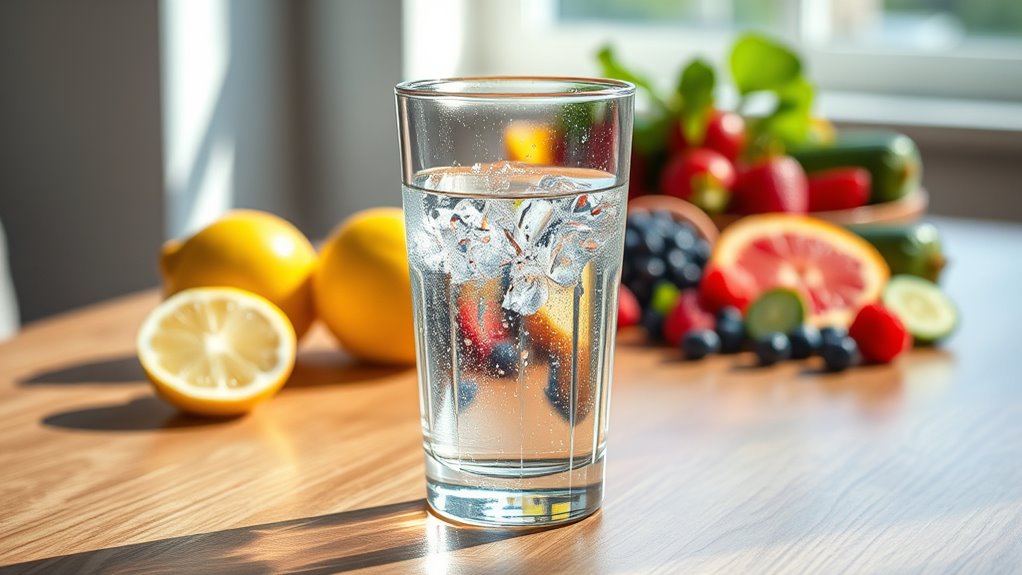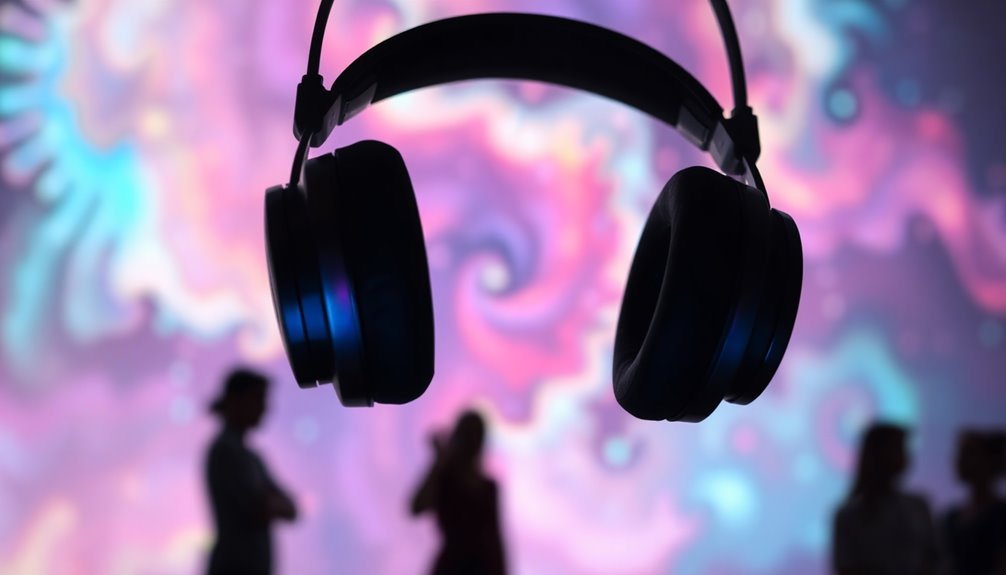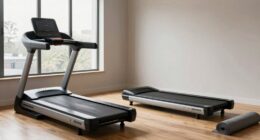The idea that everyone needs exactly eight glasses of water daily is a myth; hydration needs vary based on activity, climate, and individual health. It’s more important to listen to your body’s signals like thirst and focus on consistent, moderate intake rather than a fixed number. Proper hydration also involves balancing electrolytes through food and drinks, especially during hot weather or intense activity. Keep exploring to get a clearer picture of how to truly stay hydrated.
Key Takeaways
- The “eight glasses a day” guideline is a general recommendation, not a strict rule; hydration needs vary per individual.
- Proper hydration involves balancing electrolytes, not just drinking water, to prevent issues like cramps and fatigue.
- Thirst is a late signal; proactive, consistent hydration throughout the day is more effective.
- Hydrating with electrolyte-rich foods and drinks supports better fluid retention and overall health.
- Listening to your body’s signals and adjusting intake based on activity, climate, and personal needs ensures optimal hydration.

Have you ever wondered if you really need to drink eight glasses of water a day? The truth is, that rule is more of a general guideline than a strict requirement. Your hydration needs depend on a variety of factors like your activity level, climate, and overall health. Instead of fixating on a specific number, focus on how your body feels and responds. Proper hydration isn’t just about drinking water; it’s about maintaining electrolyte balance and knowing the right hydration timing. Electrolytes—such as sodium, potassium, and magnesium—are essential minerals that help your body retain fluids and support nerve and muscle function. When you’re dehydrated or overhydrated, your electrolyte levels can become imbalanced, leading to issues like cramping, fatigue, or even more severe health problems. That’s why, rather than just chugging water mindlessly, you should pay attention to signs of your body’s electrolyte needs. If you’re sweating heavily during exercise or on a hot day, replenishing electrolytes through drinks or foods is indispensable to prevent imbalances. Drinking water alone might not be enough; incorporating sports drinks with electrolytes or foods like bananas, nuts, and leafy greens can help maintain that delicate balance. electrolyte balance is a crucial aspect often overlooked in hydration strategies. Hydration timing is another key factor often overlooked. Drinking water consistently throughout the day, rather than gulping large amounts all at once, allows your body to absorb and utilize fluids more efficiently. Think of hydration as a steady stream rather than a single flood. For example, sip water regularly during your workouts or hot weather to keep hydration levels stable. Waiting until you’re extremely thirsty isn’t ideal because thirst is a late signal that your body is already dehydrated. Instead, aim to hydrate proactively, especially before, during, and after physical activity. This prevents dehydration from sneaking up on you and ensures your body maintains top condition. Additionally, drinking water in small, frequent amounts supports better electrolyte balance, as your body can process and utilize fluids more effectively when they’re spaced out. Ultimately, staying properly hydrated is about listening to your body and understanding your unique needs. The age-old “eight glasses a day” rule isn’t a one-size-fits-all solution. Focus on maintaining electrolyte balance and paying attention to hydration timing to keep your body in prime condition. If you’re active or live in a hot climate, your needs will be different from someone in a cooler environment. Adjust accordingly, and remember that hydration is a dynamic process—your body’s signals are the best guide.
Frequently Asked Questions
Can Eating Water-Rich Foods Hydrate You Effectively?
Eating water-rich foods like fruits and vegetables can hydrate you effectively because they have high vegetable water content and fruit hydration. When you consume these foods, you’re getting fluids along with essential nutrients, which boosts hydration beyond just drinking water. Incorporate watermelon, cucumbers, and oranges into your diet to stay well-hydrated, especially if you’re active or in hot weather. These foods are a tasty, natural way to support your hydration needs.
Does Caffeine Consumption Dehydrate or Hydrate the Body?
Is caffeine a villain or a hero in hydration? The hydration myths suggest caffeine is a diuretic, draining your fluids, but research shows it can contribute to your hydration. Moderate caffeine intake actually helps meet your hydration needs, especially if you enjoy coffee or tea. So, don’t let the caffeine diuretic myth fool you—your favorite caffeinated beverages can be part of your overall hydration plan.
How Does Climate Affect Individual Hydration Needs?
Climate impact markedly influences your hydration needs. In hot or humid weather, your body loses more water through sweat, so you must adjust your hydration strategies accordingly. During colder months, you might overlook hydration, but indoor heating can also dry you out. To stay properly hydrated, listen to your body, drink water regularly, and tailor your intake based on climate conditions. Staying aware helps prevent dehydration regardless of the season.
Are Sports Drinks Necessary for Proper Hydration During Exercise?
Think of your body as a finely-tuned machine needing the right fuel. Sports drinks can help maintain electrolyte balance and hydration timing during intense exercise, especially if it lasts over an hour or causes heavy sweating. They replenish lost electrolytes and water efficiently. However, for moderate activity, water usually suffices. Listen to your body’s signals—if you feel thirsty or dehydrated, a sports drink might be just what you need.
Can Overhydration Be Dangerous?
Yes, overhydration can be dangerous because it disrupts your electrolyte balance and strains your kidney function. When you drink too much water, your kidneys have to work harder to remove excess fluid, which can lead to a condition called hyponatremia—dangerous low sodium levels. To stay safe, listen to your body’s thirst signals and avoid excessive water intake, especially during intense exercise or hot weather.
Conclusion
Now that you know the truth behind hydration myths, you can navigate your fluid intake with confidence. Think of hydration as a personalized playlist—what works for one person might not suit another. Trust your body’s signals and stay flexible rather than sticking to a rigid rule. Remember, hydration isn’t a one-size-fits-all suit; it’s a custom-fit journey. Keep listening to your body, and you’ll stay refreshed and energized, like a well-tuned engine ready to go.










